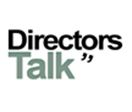The Times
Gold falls after bear attack rocks market: A deliberate “bear attack” sent the price of gold to a five-year low in early trading in the latest in a series of tremors in commodity markets to reverberate from China.
Investors press ‘buy’ as PayPal returns to market: Carl Icahn could be forgiven for telling the world “I told you so”, after PayPal returned to the public markets with a bang. The online payments group was valued at about $50 billion after its first day of trading away from its parent eBay, as its shares rose by as much as 11% on the tech-heavy Nasdaq exchange in New York.
AO World struggles to deliver after latest rout: John Roberts has said pointedly that he does not look at the share price of AO World, the household appliances retailer he floated last year, but for investors the graph made ugly reading as a rout showed no sign of abating. The sell-off in the heavily shorted stock gathered pace in late trading, ahead of the company’s first-quarter trading update and annual shareholder meeting in Bolton, sending shares to fresh lows.
Schneider takes control of Aveva with reverse takeover: One of Britain’s oldest technology companies is set to fall into the hands of an overseas Owner after engineering a complex reverse takeover by Schneider Electric, of France. Aveva, an industrial software developer, has agreed to take on the software assets of Schneider, which also will pay Aveva £550 million in cash. In return, the French company will be handed 74 million new shares that give it a majority 53.5% stake in the enlarged business
The Independent
Banks take on Bloomberg with new instant messaging service: Bloomberg’s domination of instant communications in the financial world is under threat from a new technology challenger firm funded by a powerful collection of Wall Street banks and fund managers.
British Land builds on good start to year with office lets: A flurry of U.K. office lettings and the expansion of shopping centres in Scotland has helped the property developer British Land toast “a good start to the year”.
Rolls-Royce wins airline contracts worth $2 billion after ‘annus horribilis’: Rolls-Royce’s weary investors were given a respite from bad news after the company announced it had won two lucrative contracts worth more than $2 billion (£1.3 billion).
Aveva investors to pocket £550 million in Schneider’s reverse takeover: Shares in the Cambridge-based FTSE 250 technology firm Aveva soared more than 27% as it announced a reverse takeover by Schneider Electric’s software arm.
Financial Times
Increased Iran oil output puts other exporters under pressure: The lifting of sanctions against Iran is likely to prompt an increase in the Islamic Republic’s oil output and heap pressure on the finances of other hydrocarbons exporters.
Crude supertanker operators cash in on oil market rout: For Owners of the supertankers capable of hauling more than 2 million barrels of crude around the world, the crash in oil prices has been good for business.
Tullow shares hit after cutting production at key Ghana field: Shares in Tullow Oil dropped to a nine-year low on Monday after the Africa-focused oil producer admitted it has been forced temporarily to cut production at its flagship Ghanaian oilfield.
KKR makes first move to float First Data: KKR has taken the first step towards a multibillion-dollar listing of First Data, the electronic payments processor that became the private equity group’s largest investment after a $30 billion deal at the height of the buyout boom.
Exchange rate expert nominated to Fed board: President Barack Obama intends to nominate economist Kathryn Dominguez to the Federal Reserve’s board of Governors, the second vacant seat he has sought to fill this year as markets await the central bank’s first rate rise since the financial crisis.
Fed calls for $200 billion of extra capital buffers in U.S. banks: The eight leading U.S. banks will hold extra capital buffers totalling $200 billion under new Federal Reserve rules aimed at preventing a major financial collapse.
Morgan Stanley trading boosts results: Morgan Stanley brought the curtain down on the big U.S. banks’ earnings season in positive fashion, with a double-digit rise in revenues and profits that exceeded analysts’ expectations.
Greek banks stage a limited reopening after three-week closure: Greek banks reopened on Monday after a three-week shutdown, giving customers access to cash kept in safe deposit boxes but leaving all other capital controls in place.
New Bosses at Barclays and StanChart sharpen focus on costs: The new heads of Standard Chartered and Barclays have wasted little time making their mark on the financial empires they have taken over.
Sanofi confident dengue drug will benefit patients and investors: Divana Silva flinches at the memory of her bout of dengue, a potentially fatal tropical disease that has traditionally been impossible to prevent and hard to treat.
Tony Fernandes loses Asia hotels partner: Tony Fernandes, the Malaysian entrepreneur behind AirAsia, has suffered a setback to his budget hotel business, which has lost half of its estate after its partner in Asia checked out.
Musk says SpaceX became ‘complacent’ before crash: SpaceX, the company competing for some of the U.S.’s most sensitive space launches, may have become “a little bit complacent” before a devastating rocket explosion on June 28, its Founder said on Monday as he published preliminary findings on the crash.
Global drinks can merger faces European competition probe: Brussels has launched an in-depth investigation into the agreed £4.3 billion takeover of Britain’s Rexam by Ball of the U.S., amid fears that the combined powerhouse could force up prices in the drinks can market.
‘Jurassic World’ film merchandise lifts Hasbro earnings: The success of Jurassic World helped Hasbro boost second-quarter earnings and beat market expectations, despite battling some strong currency headwinds overseas, sending shares up 6%.
IBM shares tumble 5% as revenues continue sliding: IBM’s attempted turnround was battered by stronger headwinds during the second quarter as the software division that produces nearly half its profits saw profit margins slip and company-wide revenues fall for the 13th quarter in a row.
Scathing report says Toshiba CEOs had role in accounting scandal: Toshiba’s top Executives played a role in a company-wide accounting scandal involving at least ¥152 billion ($1.2 billion) in inflated profits over a seven-year period, according to an investigative report released on Monday.
Judge refers Spanish Uber case to European Court of Justice: The European Court of Justice has been called on to decide whether Uber should be considered a transport company or a digital service, in a move that could upend bans on the company across the continent.
Hackers threaten to betray 37 million users of adultery website: Avid Life, the Owner of website Ashley Madison that specialises in matchmaking married people who wish to be unfaithful, says it has been the victim of cyber-attack.
China’s Huawei reports best revenue growth in 5 years: Huawei, the Chinese telecoms equipment maker, has reported its best revenue growth in more than five years, undaunted by a slowing economy at home.
Isis to cut private internet access in parts of Syria: The Islamic State of Iraq and the Levant has ordered the shutdown of private internet access in the Syrian stronghold of Raqqa, activists said, in a move that will severely restrict locals’ ability to maintain contact with the outside world.
Lex:
Lockheed: vertical lift: Announcing the $9 billion cash sale of its Sikorsky helicopter unit to Lockheed Martin, United Technologies said on Monday that the buyer “will ensure [Sikorsky] remains a technology leader at the forefront of vertical lift”. The company was probably not referring to financial engineering and an ascendant share price, but may as well have been. Lockheed’s shares have returned 133% over the past three years, leaving both the S&P 500 and its peers looking up from below. The stock rose more on the news of the deal, and of solid second-quarter results. Lockheed’s returns have been driven, in part, by a combination of vigorous deployment of dividends and buybacks, and a willingness to restructure its portfolio. On the first point, the company has, since the start of 2012, spent $4.5 billion buying back its own shares and $5.6 billion on dividends (against a market capitalisation of $64 billion). That is $1 billion more than it generated in free cash flow. Another $10.4 billion has gone on acquisitions, including Sikorsky. And the company promises $5 billion for shareholders this year and in each of the next two. Lockheed is also considering more portfolio changes: it said on Monday that it would consider its options for its government IT services business, which has $6 billion a year in sales. The market has thrilled to all this financial rejigging. The shares traded at a big discount to the market a few years ago; now they are on par. The re-rating is not supported by growth, retrospective or prospective. Sales have been flat, and are expected to stay that way.
Gold miners: dance of debt: Aggressive selling by speculators. Lower than expected levels of Chinese central bank holdings. Outflows from exchange-traded products. The stronger dollar. Changing interest-rate expectations. If you are a gold miner, watching your share price get beaten up yet again, it does not matter much what is pushing the bullion price down. What matters is how much headroom you have left; the industry’s average “all-in sustaining cost” (a combination of operating and maintenance costs) is already perilously close to a gold price that lurched lower still on Monday. Another key variable is debt. As cash flows dwindle, operating expenses can be cut, expansion projects put on hold and exploration activity curtailed, but the cost of debt repayments is much less flexible. Heavy debt burdens also limit a company’s ability to snap up assets or companies that may become available if the gold price remains low enough for long enough to force a shake-out; those with ungeared balance sheets have more options. This reality is already baked into equity valuations. The market capitalisation of Randgold Resources, which operates mines in Africa, is about half that of Barrick Gold even though its output is less than a fifth of Barrick’s 6.5 million ounces. Part of the reason is that Randgold has no debt while Barrick has net borrowings of $10.6 billion (although it is committed to reducing that by $3 billion this year, through cash flow and asset sales). Higher-rated shares are a useful acquisition currency too; when GoldCorp bought Probe Mines, a smaller Canadian miner, it was able to pay with its own stock.
Standard Chartered: act one: A neat trick, Mr Winters. Appearing to push power out to the regions while simultaneously concentrating it at the centre is a rare skill. But Bill Winters, new Chief Executive of U.K.-based bank Standard Chartered, has managed to pull it off. In a management rejig he has given himself more direct control over the business (mostly at the expense of Mike Rees, his deputy.) But he has also merged eight regions into four and given the newly appointed heads of those regions more control over how their businesses are run (mostly at the expense of centralised teams). Such shuffling of the furniture invites scepticism. Will it really make much difference to how the businesses are run on the ground? But there is much to like about Mr Winters’ new management structure. First, there is less of it. StanChart needs to cut costs — its cost-to-income ratio jumped by 4 percentage points to 59% last year — and slimming management will help. Managing the business along regional lines (with the exception of the investment bank) is also a good move. In many cases, StanChart’s competitors are local or regional banks rather than big global institutions. Still, this is only stage one. If Mr Winters is to win back investor confidence — the bank’s shares have fallen a third in two years — there must be more to come. A strategy update is due later this year. Further cost cuts may well be part of it. But he also needs to provide more clarity on the health of the loan book, perhaps as soon as the first-half results due next month. And he needs to be clear about whether he plans to raise capital. StanChart is not the only bank with new management, and shareholders may soon face a string of requests for more money. If Mr Winters plans to ask, he should do so sooner rather than later.
Lombard:
Banking gods in a mood to free up staff and unleash creativity: How the banking pantheon is changing. Gone are the vengeful gods. The Treasury, bent on innovation and competitiveness, has vanquished Martin Wheatley, the crusader who smote missellers and interest rate riggers, from the Financial Conduct Authority. St Antony of Barclays, the Chief Executive who stood against the investment bank and talked about changing the corporate culture, has also gone and the new guard talks stirringly about freeing staff from bureaucratic restraints.
Panting at their heels are the advisers and pay consultants who argue that Mr Wheatley’s threat to claw back bonuses from errant bankers will create a climate of fear that will fail to deter traders from behaving badly and could make them worse. PwC argues the sanctions designed to punish the minority of miscreants create anxiety and confuse the moral compass of the rest of the workforce. They inhibit creativity and create a blame culture. Instead, leaders should foster excitement and competition. Reward staff for doing a good job, and they will innovate, says PwC. The pay dogs are predictable but they do have a point. Psychologists say antisocial, psychopathic or addictive personalities — those with so-called “dark tendencies” — who make up part of any workforce are not deterred by threats of punishment, and are driven to extremes by the prospect of rewards. Boy, can they innovate; but the pursuit of excitement takes them beyond concern for ethics or consequence.
Aveva re-gifted: If only it took a length of red ribbon and some wrapping paper to re-gift every company made shabby by its exposure to the oil and gas sector. Two months ago, Aveva was a smallish engineering software business frayed by a 20% drop in full-year pretax profits, and sharp declines in revenues from Asia and from the energy industry. The company on Monday presented shareholders with a vision of a global Aveva, doubled in size and with a third of its business in the U.S. Aveva has struck a deal with Schneider Electric giving it the French group’s software operations in return for 53% of the U.K. group. “It has fantastic industrial logic,” said Richard Longdon, Chief Executive, alluding to bounteous opportunities to save on costs and cross-sell products. A “win-win”, no less. At least it is for Aveva Executives who remain independent (for the time being) and are staying in Cambridge to run a much bigger company. Deal pushers talk enthusiastically about a more diverse Aveva being re-rated by the market. But the transaction is at a very early stage. The hard numbers are that shareholders will keep a little less than half the group and receive just under £10 a share in cash — £550 million from Schneider plus a share of Aveva’s net cash balances. That is the equivalent of more than £26 a share, say analysts.
The Daily Telegraph
Speculators smash gold as dollar squeeze tightens: Powerful speculators have launched an unprecedented attack on the world gold market, driving prices to a five-year low as commodities wilt and the U.S. Federal Reserve prepares to tighten monetary policy.
Regulators could be responsible for next financial crash: Tighter bank regulation may end up destabilising financial markets and trigger a larger crisis than the 2008 crash, a report has warned.
Greece dodges July default as capital controls are set to stay, warn analysts: The Greek government cleared its monthly debts with its international creditors on Monday, as the country’s creaking banks were able to open for the first time in three weeks.
The Questor Column:
Questor share tip: Wincanton shares jump on contract win: The company said that it had signed a deal with BAE Systems. Wincanton is on the road to recovery after being hit hard during the financial crisis – it expanded too quickly and became laden with debt. Its debt levels have fallen sharply over the past six years. Underlying pretax profits jumped 23% to £31.4 million last year, from £25.6 million in 2013. However, the Pullman vehicle repair business is still struggling and the pension deficit increased to £144 million at the end of March. The whole company is worth £234 million. That said, the shares are still good value, trading on nine times forecast earnings. The acting Chief Executive, Adrian Colman, is due to take the role permanently from the start of next month and we remain positive. Wincanton at 192p+7¾p Questor says Buy.
The Guardian
Greece: plea for unity as banks reopen: The reopening of banks and repayment of debts returned Greece to a semblance of normality on Monday but the ruling Syriza party admitted it faced considerable political challenges in pushing through reforms.
Funding reforms mean ‘substantially higher debt for poorest students’: The government will push university students from poorer backgrounds further into debt following reforms announced in the budget that will save the Treasury £2 billion in the first year, according to a leading tax and spending watchdog.
Ben Sherman sold to Marquee Brands: Ben Sherman, the struggling British clothing brand sported by successive generations of rock stars from the Who and the Jam to Oasis, is hoping to make a comeback after being snapped up by a private equity-backed firm.
Barclays more scrutinised than any other U.K. high street bank: Barclays was subjected to more regulatory attention than any other U.K. high street bank in 2014, receiving 186 visits from the Financial Conduct Authority’s officials.
British bicycles on a roll – with sales and production up 70% in a year: Sales and production of British-built bikes leapt almost 70% last year, as the industry continues its revival on the back of a wider cycling boom.
Daily Mail
Business leaders blast £850 million U.K. loan to Greece as they call for more to be done to protect national interest: Business leaders are calling for more to be done to protect the national interest after Britain was forced to contribute to a new rescue package for Greece.
Aveva falls into hands of French as Schneider Electric snaps it up for £1.3 billion: The French conglomerate that bought up U.K. engineering champion Invensys last year is poised to swoop for another British firm.
Christie’s sculpts rise in revenues as younger and multi-cultural collectors snap up 20th century art: Younger and multi-cultural collectors snapping up 20th century art helped auction house Christie’s post an 8% rise in first half sales to £2.9billion.
Gold crashes to five-year low as prospect of U.S. interest rate rise sends commodity prices tumbling: Gold crashed to a five-year low as the prospect of higher interest rates in the United States sent commodity prices tumbling.
Lockheed Martin snaps up Black Hawk maker Sikorsky Aircraft for $9 billion: Lockheed Martin has snapped up Sikorsky Aircraft, maker of the infamous Black Hawk combat helicopter for $9billion (£5.8billion).
PayPal hits Wall Street running after float as it is more valuable than eBay at £33 billion: PayPal was valued at £33 billion when its shares launched on Wall Street.
Britain’s grocers under fire for profiting from customer complaints and overcharging suppliers: Britain’s supermarkets have been overcharging suppliers and profiteering from customer complaints, according to the industry’s watchdog.
Daily Express
French bank’s top savings rate hailed as ‘breath of fresh air’ for British savers: RCI Bank launched in the U.K. last month with its Freedom Savings Account and has now increased returns for all customers – new and existing. The account can be opened with £100 and a maximum balance of £1 million can be deposited.
Diesel drivers’ joy as fuel becomes cheaper than petrol for first time in 15 years: Diesel has become cheaper than petrol for the first time in 15 years supermarkets slashed fuel prices.
Price of gold plummets to five-year low on back of U.S. economic strength: Gold prices have plummeted to the lowest level in more than five years as America’s recovery from the global financial crisis gathers pace. The price dropped almost 4% to as far as $1,088 (£607) an ounce, to trade at its lowest level since 2010.
The Scottish Herald
FanDuel ramps up expansion by acquiring mobile app developer: Fanduel, the daily fantasy sports gaming provider, has ramped up its expansion strategy by acquiring what is believed to be Scotland’s largest mobile app development agency.
Scottish video games industry sees jobs and investment surge: The Scottish video games industry has seen a surge in the number of people it employs and the amount of money it generates, according to research. The TIGA representative body said the sector in Scotland has also recorded a rise in the number of studios trading, investment and contribution to U.K. GDP.
Business start-ups fall marginally but surge in inquiries to Business Gateway: The number of start-ups launched with support from national advice service Business Gateway dipped marginally in the year to March, although there was a surge in first-time inquiries attracted by the network.
Barclays job cuts could run deeper: Barclays is said to be plotting an expansion of its job-cutting programme as new Chairman John McFarlane takes control.
The Scotsman
Rolls-Royce lands contracts worth £1.4 billion: Rolls-Royce has announced two new contracts worth $2.2 billion (£1.4 billion) two weeks after issuing the latest in a series of profit warnings.
Travelodge eyes expansion after business trade lift: Travelodge, one of Scotland’s biggest hotel operators, is ramping up its expansion plans after profits leapt by almost a fifth in the first half. The budget chain, which has opened more than 500 hotels since launching in 1985, said earnings rose 19% to £90.1 million in the six months to the end of July, compared with a year earlier, helped by strong business traveller numbers.
Supermarket price wars taking toll on food firms: Food suppliers and manufacturers in Scotland are increasingly being squeezed by supermarket price wars, according to a new report.
City A.M.
Tube strike talks hit the buffers: Crunch talks between trade unions and London Underground have ground to a halt, with just two weeks left to avert a second mass walk-out of the summer.
City leads U.K. to top spot among financial exporters: The city has helped the U.K. to become the biggest net exporter of financial services in the world, a new report reveals.
Watchdog visits Barclays four times a week: Barclays was visited by U.K. regulators on 186 separate occasions last year – more than twice as many times as the next most-visited lender, figures published show.
Commodities crash to 11-year low as deflation fears grow: Latest slump in prices complicates the backdrop for a planned interest rate hikes. Global commodity prices have slumped amid a glut of supply and low demand – and now experts are foreseeing the prospect of deflation in the West.




